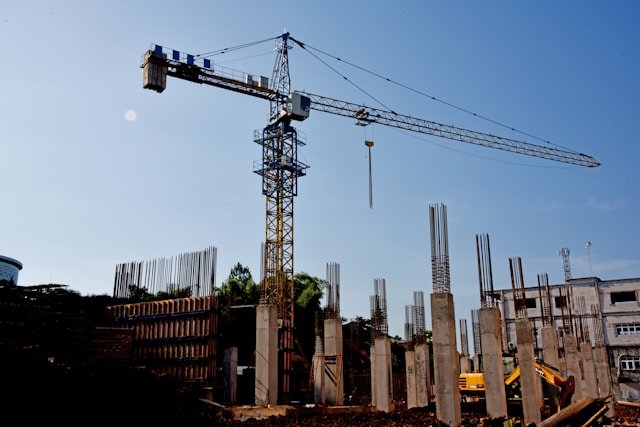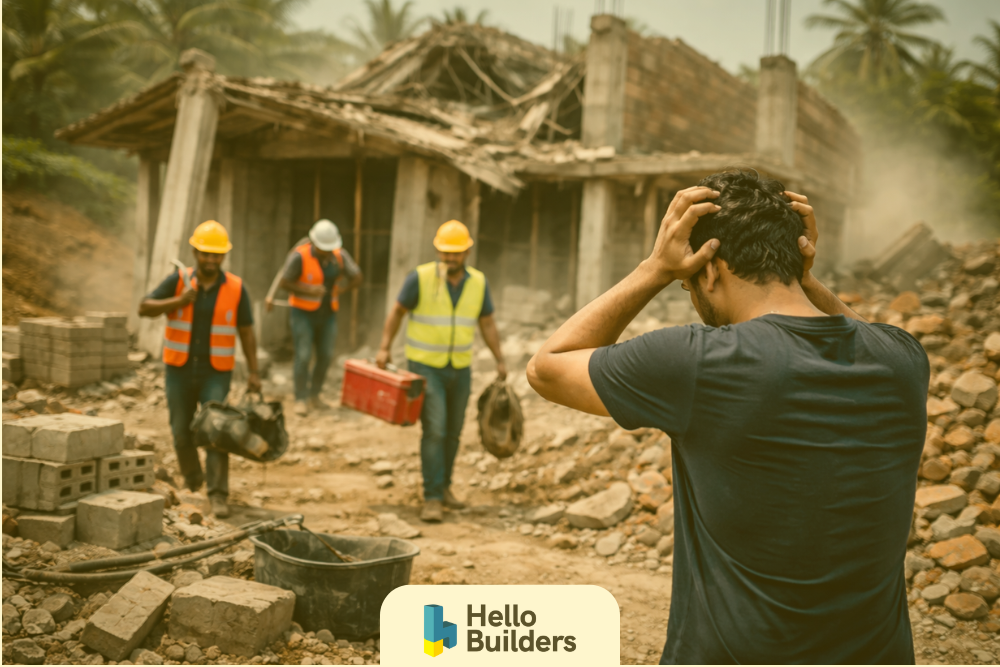
When you hear the phrase building contractors in Sri Lanka, the first image that pops up is usually some guys laying bricks or pouring concrete. And yeah, fair enough, that’s part of it. But the truth is, that picture is only a slice of what they actually do. In 2025, the job has stretched out way beyond the physical act of building. Contractors here are now part planner, part paperwork wrangler, part budget cop, and in some cases even the people who wire up your smart home gadgets.
If you’re planning to build, or even just thinking about it, knowing what building contractors in Sri Lanka really handle is the difference between walking into a nightmare and managing things with less stress.
Consultation and Planning
Every project kicks off with a chat. Sometimes it’s in a fancy office, sometimes on a plastic chair at the building site. Doesn’t matter. What matters is, building contractors in Sri Lanka use that chat to figure out what’s inside the client’s head. Most of the time it’s fuzzy. People say things like, “I want a modern home but not too flashy” or “I need three bedrooms and a garden, but I don’t want it to cost a bomb.”
That’s where the contractor earns their keep. They take those vague thoughts and bend them into something workable. Usually there’s a site visit involved. Soil checked. Slope looked at. Sunlight studied. Even where the road access is and whether a truck can get in.
Budgets get mentioned here too, but honestly, anyone who’s built knows they don’t stick perfectly. Cement prices go up, workers strike, rain doesn’t stop—lots of surprises. Still, this stage is where trust either grows or dies. If a family feels the contractor isn’t listening, they often back away right here.
Design Work and Engineering Back-Up
The next big step—design. Many people don’t realize how many approvals and drawings you need before one brick is placed. Building contractors in Sri Lanka usually team up with architects and engineers for this part. Some of the bigger players even have in-house designers.
These days it’s not just boring 2D sketches. More and more, they use 3D models or virtual walkthroughs. Clients can actually see how the house will look, and walk around it digitally. In cities where land plots are tight, this is priceless. A small mistake in design can cost a fortune later when walls don’t line up with space.
Contractors also make sure designs meet the codes. You might love a big balcony, but if it doesn’t meet municipal rules, forget it. This check saves people from future fights with the council.
Paperwork Nobody Wants – Permits and Approvals
Here’s the bit nobody enjoys. The permits. In Sri Lanka, this can take weeks or sometimes months. Different areas, different offices. Municipal councils, provincial boards, even the Urban Development Authority for certain plots. For the average homeowner, it feels like running around in circles.
That’s why most hand it off. Building contractors in Sri Lanka know who to talk to, what forms are usually rejected, and how to avoid silly mistakes that cause delays. It’s not glamorous, but it’s essential. Without those approvals, the project can’t move.
The Actual Building – Core Construction
This is the part people usually imagine. Bricks, cement, steel rods, roofs going up. Building contractors in Sri Lanka organize the teams who actually do the heavy lifting. Foundation, walls, plumbing, electrical, roofing, tiling every trade has to come in the right order.
And here’s where experience really shows. A smaller local builder may do fine, but sometimes they cut corners—not always on purpose, sometimes because budgets are squeezed. Bigger contractors usually have proper crews and links to suppliers who deliver better material.
The contractor’s role here is coordination. Making sure one team finishes before the next starts. Because if wiring comes in before plastering is ready, or if tiles arrive before floors are level, everything stalls. Months can be wasted.
Extra Services People Don’t Always Expect
Homes aren’t just boxes anymore. People want more. And building contractors in Sri Lanka are picking up on it fast.
- Many now offer interior packages. Cupboards built in, modern kitchens, nice lighting setups.
- Landscaping is gaining traction too. Even on small plots, people want green space or a rooftop corner to relax.
- Eco-friendly systems are no longer fancy extras. Solar panels, rainwater harvesting, energy-saving windows—they’re becoming part of the standard talk.
- And don’t forget smart tech. CCTV cameras, sensor lights, automated gates. These are being offered as part of the deal, not just something you add later.
It shows how much broader the contractor’s role has become compared to ten years ago.
Money and Deadlines – Project Management
Talk to anyone who has built and they’ll laugh, controlling money is harder than laying cement. Building contractors in Sri Lanka double up as project managers. They watch the budget, chase suppliers, negotiate rates, and try to keep deadlines real.
But delays? They happen. Heavy rains, shortages, transport strikes. A good contractor doesn’t just shrug. They shuffle the plan, adjust the schedule, and try to keep things moving without blowing the cost apart.
Clients also want updates. They don’t want to feel in the dark. The better contractors now share updates regularly, even daily pictures or cost breakdowns. With prices climbing in Sri Lanka, this kind of transparency isn’t just nice, it's survival.
After Handover – Maintenance and Fixes
Many think once the keys are handed over, that’s it. But not really. Cracks show up. Pipes leak. Paint might peel quicker than expected. The climate in Sri Lanka is tough; rains, humidity, salty coastal air all take their toll.
Good building contractors in Sri Lanka don’t disappear. They stand by their work. Some give warranties, some offer ongoing maintenance packages. That after-sales service matters more than people think. It separates the ones chasing quick cash from the ones building long-term reputations.
What’s Changing in 2025
Construction isn’t stuck in the past. Building contractors in Sri Lanka are shifting with the times.
- Green building is moving mainstream. People ask about eco-materials even before they ask about cost.
- Tech tools are reshaping communication. Apps, live updates, drone photos it’s becoming common. For clients living abroad, this is a lifesaver.
- Turnkey projects are rising. Instead of juggling ten service providers, homeowners are leaning toward one contractor handling everything—from land clearing to handing over a fully furnished house.
These trends show just how wide the contractor’s job has stretched.
Picking the Right Contractor
With so many services, the obvious question is—how do you choose? Experience is big, sure, but so is reputation. Smart clients check past projects, talk to other homeowners, sometimes even visit a site in progress.
Warning signs? No written contracts. Vague cost estimates. Big advance payments demanded. And contractors who won’t listen. The funny thing is, sometimes a slightly less-experienced contractor who communicates well is easier to work with than a veteran who ignores you.
Because at the end of the day, hiring building contractors in Sri Lanka is not just a transaction. It’s a partnership. Both sides have to work together for months, sometimes years.
So, what do building contractors in Sri Lanka really do? A lot more than lay bricks. They guide the first chat, organise design, chase permits, manage money, build the structure, add modern extras, and sometimes even come back later to fix what went wrong.
In 2025, the role is expanding further. Contractors must adapt to technology, sustainability, and higher client expectations. For anyone planning a home, selecting the right contractor can be the difference between a smooth build and a stressful nightmare. Choosing wisely ensures your dream home is completed on time, legally, and with quality that lasts.







